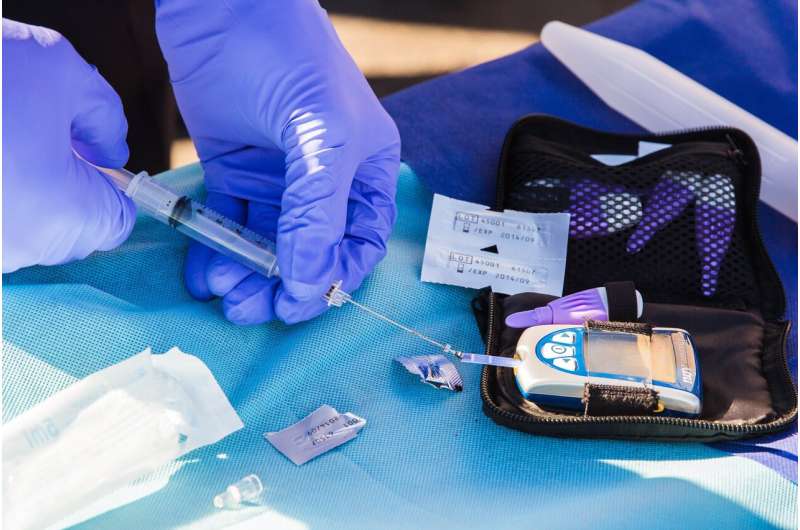
COVID-19 is more than a respiratory disease. Emerging evidence indicates that COVID-19 acts as a vascular disease, helping explain why people with diabetes are at a higher risk of developing its severe form, according to new university research.
Florida Tech Ph.D. student Amanda Almeida de Oliveira, along with biomedical and chemical engineering and sciences faculty member Kenia Pedrosa Nunes, completed the review paper, “Crosstalk of TLR4, vascular NADPH oxidase, and COVID-19 in diabetes: What are the potential implications?” The manuscript was published in the May edition of Vascular Pharmacology.
In the paper, de Oliveira and Nunes reviewed the potential impact of COVID-19 on individuals with diabetes. They identified heavy inflammation in COVID-19 patients linked to over activation of the immune system. The presence of inflammation led them to propose that oxidative stress would also contribute to the severity of COVID-19—since the mechanisms triggering inflammation and oxidative stress overlap—which would affect the blood vessels in one’s system. Given previous research that pointed to the disease’s vascular connections, as well as studying the problems patients had throughout their bodies, the two researchers were even more convinced COVID-19 was not only a respiratory disease.
“The heart would start having problems, the kidneys, the whole body might shut down in severe cases,” de Oliveira said. “When they started discussing COVID-19 as a vascular disease, everything started making sense because the blood vessels connect all systems in the human body, so, if it’s affecting the vasculature, it could help explain why we’re seeing problems throughout the body.”
de Oliveira and Nunes also examined how toll-like receptor 4 (TLR4), the cofactor NADPH, diabetes and COVID-19 may interact. They observed that in diabetes, both TLR4 and NADPH oxidase levels/activity are altered, and noted in the paper that these mechanisms, whether together or independently, might play a role in diabetes-associated severe COVID-19. TLR4 is a protein in humans that plays a significant role in regulating NF-κB, a major transcription factor that regulates genes responsible for both the innate and adaptive immune response. There is also a link between TLR4 and NADPH oxidase, which has also been reported to modulate NF-κB activation, contributing to inflammation, oxidative stress, and likely the severity of COVID-19 in diabetic patients.
Studying a disease that shut down the globe last year caused some challenges for researchers, including de Oliveira and Nunes. While they learned a lot in the past year, they noted there are still a lot of things researchers are trying to figure out with the disease, such as long-term effects of COVID-19 on individuals with diabetes. With research still being so new, Nunes also noted the opportunity for researchers to continue their contributions to further understanding various aspects of COVID-19’s effect of the vascular system.
“It’s our contribution associated to the disease to say, “Look, COVID-19 can affect this as well, this needs to be investigated,” and that’s not just with this research, but with all the research that has been published,” Nunes said. “Everyone’s trying to contribute to say, “Hey, I see that, this is what I see with my background, and this is what I haven’t seen in the literature,” and that’s the idea.”
Nunes noted through this research exactly how serious COVID-19 is, even more than previously known. Even with a vaccine, the problem is still very much a real one that needs to be solved. For de Oliveira and Nunes, the public needs to be prepared in case something like this happens again.
Source: Read Full Article
